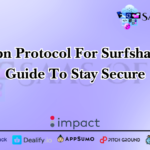Online scams are everywhere today. They can take your money or steal your personal information. One such scam is the “Norton LifeLock 360 PayPal scam.” Many people have already been tricked by this scam. This blog will help you understand what it is and how to avoid it.
What Is the Norton LifeLock 360 PayPal Scam?
The Norton LifeLock 360 PayPal scam is a fake message or email. The message says you have bought Norton LifeLock 360 or a similar service. It claims that the payment was made through PayPal. But here’s the truth – you didn’t make this purchase. The scammer wants to trick you into taking action.
The email or message is designed to look real. It may have the Norton or PayPal logo. It may mention an invoice number and other details. But all of this is fake. The goal is to make you feel worried and act quickly.
How Does This Scam Work?
Here is how the scam usually works step by step:
- You Get a Fake Email or Message
You receive an email or message. It says you bought Norton LifeLock 360. The message might say the cost is $399 or more. - The Fake Payment Notification
The email claims the money has been deducted from your PayPal account. There will be a fake order ID and payment details. - Contact Information
The email gives a number to call or a link to click if you did not make this payment. - What Happens When You Call or Click
If you call the number or click the link, the scam starts. The person on the other end will act like they are helping you. But they are stealing your details. Sometimes, they may ask for remote access to your device.
Scammers use your fear and stress to fool you. They want passwords, credit card numbers, or bank account details. They might even install harmful software on your computer or phone.
Why Do People Fall for This Scam?
Scammers are very clever. Their emails and messages look very real. Here are some reasons victims fall for it:
- Fake but Professional Design
The scam emails use logos and formatting similar to PayPal and Norton LifeLock. - Pressure Tactics
The email might say the amount will be charged today. It makes people feel they need to act fast. - Fear of Losing Money
Nobody wants to lose hundreds of dollars. People call the number or click the link because they are worried.
How to Protect Yourself from the Norton LifeLock 360 PayPal Scam
Follow these simple steps to stay safe. These tips will help you avoid online scams too:
1. Always Double-Check Emails
- Check the sender’s email address. Scams usually come from strange or random email addresses.
- Look for spelling mistakes or weird sentences.
2. Do Not Click or Call Immediately
- Avoid clicking on links in suspicious messages.
- Do not call numbers provided in such emails. Use official websites to find contact details.
3. Log in to PayPal Directly
- If the email mentions PayPal, don’t trust it right away.
- Log in to your PayPal account through their app or website. Check your payment history there.
4. Contact Norton Directly If Needed
- If the email mentions Norton LifeLock, contact them on their official support page. Do not trust the contact number in the email.
5. Enable Two-Factor Authentication
- Add an extra layer of security to your accounts. This makes it harder for scammers to access your accounts.
The Signs of a Scam
Identifying scams early is important. Look for these red flags in emails or messages:
- Strange emails asking you to click links
- Payment confirmations for things you didn’t buy
- Phone numbers or links that do not come from official websites
- Messages creating panic, like “Act now!” or “Within 24 hours”
Summary of Tips
Here’s a quick list to help you remember:
- Do not trust emails or messages that look suspicious.
- Never share your passwords or bank details over the phone.
- Always verify through official websites or apps.
Understanding scams like the Norton LifeLock 360 PayPal scam will help you avoid them.
How to Protect Your Personal Information
Keeping your personal information safe is very important. Scammers look for any weakness to steal your details. Follow these steps to protect yourself:
1. Use Strong Passwords
- Do not use easy-to-guess passwords like “123456” or “password.”
- Create unique passwords for every account you have.
- Use a mix of letters, numbers, and special symbols.
2. Avoid Sharing Personal Details Online
- Do not share your full name, address, or phone number on public platforms.
- Check the privacy settings on social media to control what others see.
3. Be Cautious with Public Wi-Fi
- Avoid making payments or entering passwords on public Wi-Fi.
- Use a VPN (Virtual Private Network) for extra security.
4. Keep Your Devices Updated
- Update your phone, computer, and apps regularly.
- Updates fix security weaknesses, making it harder for hackers to attack.
5. Install Security Software
- Use trusted antivirus or security applications like Norton LifeLock 360.
- Regular scans will help catch harmful software on your devices.
Why Reporting Scams Is Important
When you report a scam, you help others. It prevents scammers from targeting more people. Here’s how you can report scams effectively:
1. Report to PayPal
- If the scam involves PayPal, forward the fake email to spoof@paypal.com.
- PayPal will investigate the issue and alert other users.
2. Contact Your Bank or Credit Card Provider
- If you gave any payment information, tell your bank immediately.
- They can block unauthorized transactions and secure your account.
3. Inform Norton LifeLock Support
- If the scam claims to be from Norton LifeLock 360, report it to Norton.
- Visit their official website and use the correct contact details.
4. Report to Local Authorities
- Many countries have cybercrime divisions or helplines.
- Contact them with the details of the scam email or message.
5. Share Your Experience Online
- Post about the scam on social platforms or forums.
- This spreads awareness, helping others avoid the same mistake.
The Importance of Online Safety
Online safety is not just about preventing scams. It is about protecting all aspects of your digital life. Here are the biggest reasons why online safety matters:
1. Guard Against Identity Theft
- Scammers steal identities for money, loans, or illegal activities.
- If they have your personal information, they can impersonate you.
2. Protect Your Money
- Scammers target bank accounts, PayPal, and credit cards.
- Staying safe online keeps your financial information secure.
3. Maintain Your Reputation
- A stolen identity can cause problems for your personal and work life.
- Hackers may misuse your social media or email to harm others.
4. Safe Browsing for Your Family
- If you’re cautious online, you can teach the same to your children.
- Protecting kids from harmful content or scams is very important.
Smart Habits for Better Online Safety
Here are actionable habits to help you stay safe:
- Think Before You Click: Don’t click on links unless you trust the sender.
- Monitor Your Accounts: Check your email, bank, and social accounts regularly for changes.
- Use Two-Factor Authentication (2FA): This adds an extra step to log in, making it harder for hackers.
- Back Up Your Data: Keep copies of important files. Use cloud storage or an external drive.
What to Do If You Fall for the Scam
Sometimes, even if you’re careful, you might fall for a scam. Mistakes happen. Here’s what you should do immediately:
1. Disconnect the Device
- If you clicked a scam link or gave remote access, disconnect your device from the internet.
2. Change Your Passwords
- Update the passwords for your email, PayPal, and other important accounts.
3. Scan for Malware
- Use an antivirus program like Norton LifeLock 360 to scan your device.
- Remove any harmful software found during the scan.
4. Check Bank Statements
- Look for suspicious transactions. If you see any, report them to your bank.
5. Inform Everyone Affected
- If your email or social account was hacked, tell your contacts.
- This prevents the scammer from fooling your friends or family.
Taking Control of Your Online Safety
Staying safe online starts with building awareness. Scammers want you to act quickly and without thinking. But if you stay calm, you can protect yourself easily.
The Norton LifeLock 360 PayPal scam is just one of many online tricks. By following these tips and habits, you can protect your money, identity, and peace of mind. Remember, staying informed and cautious is your best defense.











